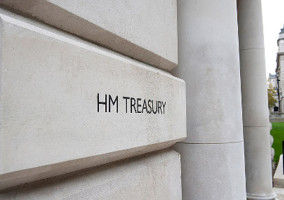Military charities are “the market leader” in collaborating with one another, according to Cobseo, the body which represents veterans’ organisations.
Military charities have previously been criticised by senior politicians for perceived “duplication” of essential services for veterans, but Sir John McColl, chair of Cobseo, said his sector should not be “shy or diplomatic” about the effectiveness of their work.
Challenge to other charities
McColl, speaking at the online launch of new research into veterans’ charities, said: “I would challenge any sub-sector in the charitable community to come forward and demonstrate to us that their instruments of cooperation and collaboration hold a candle to anything in our sector.
“They absolutely can’t do it. We are the market leader.”
He added: “I don’t think we need to be at all shy or diplomatic about this. In this sector we have the market leader in terms of cooperation and collaboration.
“If anyone disagrees, come forward with evidence that someone is doing it better, please.”
McColl said that Cobseo is already helping military charities to consider ways to collaborate, including shared use of buildings, backroom resources and finance operations. This sort of cooperation “could result in some kind of merger, but it doesn’t have to necessarily be that”, he said.
Ministerial help
Discussing the long-term impact of Covid-19 on military charities, McColl said that “the really difficult time” will be in 2021 and 2022, when organisations could start running out of reserves.
He suggested that umbrella bodies may consider taking up an offer from veterans’ minister Johnny Mercer MP, who had promised to take their concerns to the Treasury if charity finances deteriorated further.
Number of military charities is falling
The research, published by the Directory of Social Change, finds that there are 1,843 military charities in the UK, of which 601 are small association branches, which are typically sustained through members’ subscriptions, and 479 provide welfare support.
It also finds that, contrary to criticisms that there are too many military charities, the number is actually falling. There are around 130 fewer military charities today than in 2016.
Quality of life
Stuart Cole, research manager at DSC and the lead author of the report, said: “Armed forces charities provide everything from complex physical and mental rehabilitation, to housing and social activities.
“The money these charities raise and the services they provide aren’t an ‘add-on’ or ‘nice to have’. They are central to the quality of life for millions of serving and ex-serving personnel and their families.
“If they disappeared overnight, the state would have to pick up a substantial portion of the financial burden, but the negative impact of the pandemic represents a real risk to these services in the near and medium term.”
Related articles











